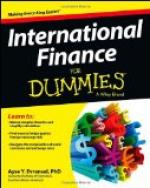One of the great benefits that the present war is working is that it is teaching young countries to do without continual drafts of fresh capital from the older ones. Instead of being able to finance themselves by fresh borrowing, they have had to close their capital accounts for the time being, and develop themselves out of their own resources. It is a very useful experience for them, and is teaching them lessons that will stand them in good stead for some time to come. For the old countries, when the war is over, will have problems of their own to face at home, and will not be able at once to go back to the old system of placing money abroad, even if they should decide that the experiences of war have raised no objections to their doing so with the old indiscriminate freedom.
It is easy, however, to exaggerate the effect of the war on our power to finance other peoples. Pessimistic observers, with a pacifist turn of mind, who regard all war as a hideous barbarism and refuse to see that anything good can come out of it, are apt in these days to make our flesh creep by telling us that war will inevitably leave Europe so exhausted and impoverished that its financial future is a prospect of unmitigated gloom. They talk of the whole cost of the war as so much destruction of capital, and maintain that by this destruction we shall be for some generations in a state of comparative destitution. These gloomy forecasts may be right, but I hope and believe that they will be found to have been nightmares, evolved by depressed and prejudiced imaginations. War destroys capital when and where actual destruction of property takes place, as now in Belgium, Northern France, and other scenes of actual warfare, and on the sea, where a large number of ships, though small in relation to the total tale of the merchant navies of the world, have been sunk and destroyed. Destruction in this sense has only been wrought, so far, in limited areas. In so far as agricultural land has been wasted, kindly nature, aided by industry and science, will soon restore its productive power. In so far as factories, railways, houses and ships have been shattered, man’s power to make, increased to a marvellous extent by modern mechanical skill, will repair the damage with an ease and rapidity such as no previous age has witnessed.




